Area of Legal Practice
“Your Justice, Our Commitment.”
Our firm offers comprehensive legal services across diverse practice areas to meet the needs of individuals, businesses, and organizations. From corporate and commercial law to criminal defense, civil disputes, family matters, cyber crime, and financial regulations, we provide strategic legal solutions tailored to each case. We handle contract drafting, litigation, regulatory compliance, and alternative dispute resolution with professionalism and integrity. Whether you require expert representation in court or preventive legal advice, our team combines deep legal knowledge with practical insight to protect your rights and achieve the best possible outcome.

CRIMINAL LAW
Our law firm exclusively deals in almost all conventional legal matters of criminal law that is punishable under Bhartiya Nyaya Sanhita 2023 erstwhile Indian Penal Code and inclusive of modern criminal law practices like cyber frauds, financial frauds, NI Act cheque bounce, Artificial Intelligence frauds, online gaming frauds, Various economic offences punishable under SEBI, FEMA, Passport Act, Immigration Act etc.
Our law firm deals with the legal service of Bail matters pertaining to all criminal cases and it includes –
Bail Matters
Criminal Misappropriation of funds, Cheating and Frauds, theft, robbery, extortion, cheating, breach of trust, misappropriation of properties etc.
Forgery, Criminal Breach of Trust and criminal conspiracy;
Dishonour of Cheque under N.I.Act.
Matrimonial Offences (a) Offence unusable under Dowry Act (b) Domestic violence Act (c) 498A, 406 IPC etc.
Offence related to Drugs punishable under NDPS Act;
Offences against women and other Sexual offences;
Offence against the public tranquillity and public justice;
Offences affecting human body (viz. murder, suicide, dowry death, causing death by negligence, rape, kidnapping, unnatural sex etc.
POCSO Cases

COMMERCIAL LAW
Modern and fast transactions in the society attracts the commercial breach of contract and financial laws. In constant with the line of present scenario our law firm exclusively handles cases pertaining to commercial laws and committed to deliver speedy remedy.
Our law firm deals with the legal service of commercial laws practice and includes –
- Breach of contract and specific performances of contract.
- Recovery suit.
- Banking recovery matters.
- Commercial suits.
- MSME complaints and Arbitration.
- Contract Drafting and Contract Review.
- Legal consultancy to Corporates, Start Up’s and Partnership Firms.
Financial Matters
Financial services litigation encompasses a broad range of legal disputes involving financial institutions, such as banks, investment firms, and insurance companies. These disputes often arise from complex transactions and regulatory compliance issues.
Our law firm deals with the legal service of financial matters and it includes –
- Compliance and legal follow-up’s.
- Arbitration and Negotiations. o Contract Drafting and Contract Review.
- Legal consultancy to Corporates, Start Up’s and Partnership Firms.
- Breach of contract and specific performances of contract.
- Securities claim

GST, INCOME TAX MATTERS
We provide expert legal assistance in Goods and Services Tax (GST) and Income Tax matters, including assessments, audits, disputes, appeals, and compliance. Our team ensures accurate advice, strategic representation before tax authorities, and timely resolution to safeguard your financial interests.
GST, MSME MATTERS
GST MATTERS, MSME LAW PRACTISE Modern trade attracts commercial dispute pertaining to the payment of invoice/tax bill and compliance of agreement. Statute of GST and MSME sought provisions for the speedy remedy for the deprived party. Our law firm deals with the legal service under GST and MSME case like filing of petition, reply, arbitration proceedings, mediation and negotiation.
- Legal service under GST and MSME sase
- Filing of Petition and Reply
- Resolve Dispute by the way for Arbitration, Mediation and Negotiation
Get the Best Legal Solution
At our firm, your problem becomes our mission. We combine expertise, dedication, and strategic thinking to deliver practical, results-driven legal solutions. Whatever the challenge, we stand by you—protecting your rights, resolving disputes, and securing the best possible outcome.
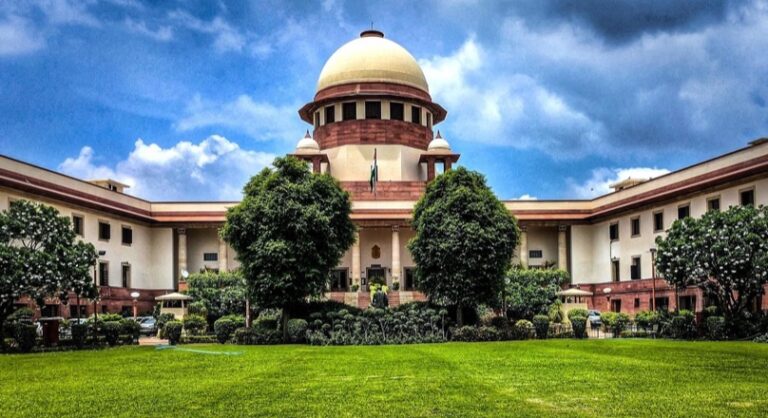
SPECIAL LEAVE PETITIONS SLP’S AND WRIT PETITION BEFORE HON’BLE SUPREME COURT OF INDIA, WRIT PETITIONS BEFORE HON’BLE HIGH COURTS OF RESPECTIVE JURISDICTIONS OF STATE AND UNION TERRITORIES
A writ petition is a formal request made to a court, typically the High Court or Supreme Court, seeking a specific legal remedy or action.It is a legal document that asks the court to issue a "writ," which is a written order directing someone to perform a specific act or refrain from doing something.In India, writ petitions are primarily used to enforce fundamental rights and seek redressal for grievances against state authorities or individuals in the case of Habeus Corpus writ.A Special Leave Petition (SLP) is a discretionary appeal mechanism in India, allowing the Supreme Court to hear appeals against judgments or orders of any court or tribunal, except those related to the Armed Forces.It's governed by Article 136 of the Indian Constitution and is used when a substantial question of law is involved or gross injustice is perceived.The Supreme Court has the power to grant or deny an SLP at its discretion, and it's not an automatic right of appeal. SLPs can be filed against judgments, decrees, or orders of any court or tribunal in India, except those involving the military. SLPs are typically filed when there's a significant legal issue at stake or when a party believes a lower court's decision has resulted in gross injustice.

CIVIL LAW PRACTICE
Civil disputes encompass disagreements between individuals, organizations, or even the government, where the focus is on resolving private rights and obligations rather than criminal offenses. These disputes often involve seeking remedies like monetary compensation or specific performance. Common examples include contract disputes, property conflicts, and family law matters.
Our law firm provides comprehensive exhaustive legal services to our clients under litigation of civil laws including money recovery, recovery disputes, suits related to children, wards, guardianship, estate, property, custody, execution, claims, partitions, succession, will, estate, probate, administration.
Our law firm deals with the legal service of civil laws and it includes –
- Property Disputes • Suit for recovery of money, estate, property (Movable or immovable), debts, dues etc.
- Suit for specific performances of contacts or agreements.
- Suit for partition of movable or immovable properties.
- Suit for permanent/mandatory/temporary injunctions.
- Suit for declaration.
- Petitions under child and wards act, Guardianship Act.
- Petition for custody of children, wards, appointments of gradians etc.
- Petition for obtaining probate/letter of administration / succession certificate
- Suits under Hindu succession and Indian Succession Act;
- Civil Writs petitions before High Courts and Supreme Courts.
- Revision, Review, Appeal, Special leave to Appeal etc.
- Suit permissible under any substantive law.
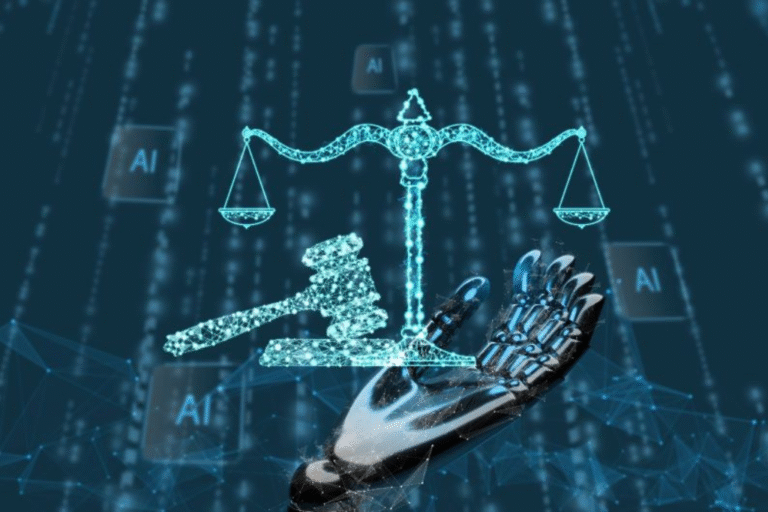
CYBER CRIME
Cybercrime is criminal activity that either targets or uses a computer, a computer network, networked device or any individual etc. Most cybercrime is committed by cybercriminals or hackers who want to make money. However, occasionally cybercrime aims to damage computers or networks for reasons other than profit. Cybercrime can be carried out by individuals or organizations. Some of the emerging cyber crimes are Identity Theft (Digital personation), Phishing, Ransomware, Account Hacking, Credit Card Fraud, Online Scams, Business Email Compromise (BEC).
Our law firm deals with the legal service of cyber laws and it includes –
• Cyber frauds
• Digital impersonation
• Cyber network attacks.
• Children and women pornography
• Data breach and security
• Other criminal acts under IT Act 2000
POCSO ACT
The POCSO Act, or the Protection of Children from Sexual Offences Act, is a comprehensive law enacted in India in 2012 to protect children from sexual assault, sexual harassment, and child pornography. It also establishes special courts for the trial of such offences and provides for child-friendly mechanisms throughout the judicial process.

POSH ACT
POSH ACT
The POSH Act, or The Prevention of Sexual Harassment of Women at Workplace (Prevention, Prohibition and Redressal) Act, 2013, is a piece of Indian legislation aimed at protecting women from sexual harassment at their workplaces. It defines sexual harassment, outlines procedures for addressing complaints, and mandates employers to create safe working environments.
Our law firm deals with the legal service POSH law and it includes- –
- POSH law compliance
- POSH law training in Corporates and Start-Up’s Legal seminar’s
- POSH law complaints and defence

MONEY LAUNDERING & ANTI-CORRUPTION LAW
Money laundering and Anti-corruption are the offences related to the branch of economic offences. Second offence is only restricted to the public officer or government servant. Both the offences are special offences in nature as the both the offence have its own special statute. Money laundering involves disguising financial assets so they can be used without detection of the illegal activity that produced them.
Through money laundering, the criminal transforms the monetary proceeds derived from criminal activity into funds with an apparently legal source.
Section 3 of the PMLA defines the offence of money laundering and states that, "whosoever directly or indirectly attempts to indulge or knowingly assists or knowingly is a party to or is actually involved in any process or activity connected with the proceeds of crime including its concealment, possession, acquisition or use and projecting or claiming it as untainted property shall be guilty of offence of money laundering".
Section 4 of the PMLA provides the penal consequence i.e. punishment for the offence of money laundering. Anti-corruption laws aim to prevent and punish corrupt practices, particularly involving public officials.
These laws often target bribery, extortion, embezzlement, and other forms of dishonesty that abuse public trust for personal gain. The primary goal is to promote transparency, accountability, and ethical conduct in government and business.

RERA AND RESPECTIVE STATES REAL ESTATE REGULATORY AUTHORITIES MATTERS
RERA litigation covers a wide range of issues related to real estate projects, including delays in project completion, construction defects, misrepresentation in advertising, and financial matters. The main parties involved in RERA litigation are homebuyers, developers (promoters), and sometimes real estate agents or other stakeholders. Aggrieved parties can file a complaint with the relevant RERA Authority or the Real Estate Appellate Tribunal, depending on the nature and stage of the dispute. The RERA Authority typically conducts hearings, examines evidence, and attempts conciliation or mediation before issuing a final order. If a party is not satisfied with the RERA Authority's order, they can appeal to the Real Estate Appellate Tribunal. RERA aims to protect homebuyers' interests, promote transparency in real estate transactions, and ensure timely project completion.
In the following conditions interested parties can approach the authority:
- Project Delays:Developers failing to deliver projects on time, leading to compensation claims from homebuyers.
- Construction Quality:Complaints about defects or deviations from approved plans.
- Misrepresentation:Allegations of false or misleading claims in project advertising.
- Financial Matters:Disputes over payment schedules, refunds, or other financial transactions.
In essence, RERA litigation provides a legal framework for resolving disputes in the real estate sector, with the goal of ensuring fairness, transparency, and accountability for all parties involved. Our law firm deals with the legal service of RERA and Respective State RERA laws practise includes-
- Legal Notices
- Complaint and Litigation before the Authority.
- Appeal
- Arbitration, Mediation and Negotition
- Litigation before consumer forum alternate to the RERA proceedings.
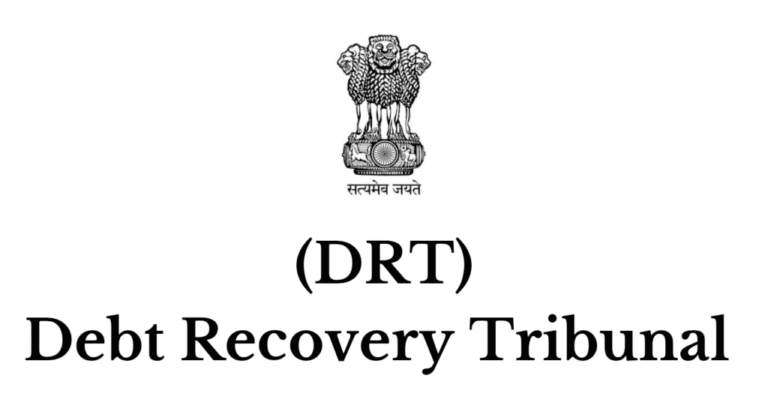
DRT AND DRAT (SARFAESI ACT)
The SARFAESI Act (Securitisation and Reconstruction of Financial Assets and Enforcement of Security Interest Act), 2002, allows banks and financial institutions to recover bad loans without court intervention by seizing and selling the borrower's secured assets. If a borrower defaults on a secured loan, the lender can take possession of the asset (like property) pledged as collateral and sell it to recover the debt. The Debt Recovery Tribunal (DRT) is a specialized body established under the Recovery of Debts and Bankruptcy Act, 1993, and is the forum where borrowers can challenge actions taken under the SARFAESI Act. The RDB Act, 1993 provides for establishment of Debts Recovery Tribunals (DRTs) with original jurisdiction and Debts Recovery Appellate Tribunals (DRATs) with appellate jurisdiction, for expeditious adjudication and recovery of debts due to banks and financial institutions, insolvency resolution and bankruptcy of individuals and partnership firms and connected matters there with. The Recovery of Debts and Bankruptcy Act, 1993 (RDB Act) provides speedy redressal to lenders and borrowers through filing of Original Applications (OAs) in Debts Recovery Tribunals (DRTs) and appeals in Debts Recovery Appellate Tribunals (DRATs).The Securitisation and Reconstruction of Financial Assets & Enforcement of Security Interest Act, 2002 (SARFAESI Act) provides access to banks and financial institutions covered under the Act for recovery of secured debts from the borrowers without the intervention of the Courts at the first stage. Securitisation Appeals (SAs) can be filed with the DRTs by those aggrieved against action taken by secured creditors under the SARFAESI Act.

CUSTOM AND TRADE MATTERS
Customs department/laws play a crucial role in regulating and facilitating International trade while also safeguarding a nation's borders and economy. Also responsible for collecting import and export duties, preventing smuggling and illegal trade, and ensuring compliance with national and international trade regulations. Customs departments collect import and export duties, which contribute significantly to a country's revenue. They ensure accurate assessment and collection of these duties according to the prevailing laws and regulations. Customs facilitates legitimate trade by streamlining import and export procedures. They aim to expedite the movement of goods across borders while ensuring compliance with regulations. This involves processing necessary documentation, conducting inspections, and providing clearance for goods. Customs serves as a first line of defense against smuggling, illegal imports and exports, and other illicit activities. They enforce laws and regulations related to prohibited and restricted goods, ensuring public safety and security. This includes monitoring goods, conducting searches, and seizing contraband items. Customs officers enforce various national and international trade regulations, including those related to import/export restrictions, product standards, and intellectual property rights. They work to prevent the entry of counterfeit goods, dangerous materials, and other items that could harm the country's economy or citizens. Customs departments collect data on imports and exports, which is used for various purposes, including planning, budgeting, and economic analysis. This data provides valuable insights into trade patterns and trends, helping policymakers make informed decisions.
Our law firm deals with the legal service of custom and trade laws and its dispute. Custom litigation includes the filing of reply, appeals, court appearance, Arrest under Custom Act and bail as per the provisions of BNSS.
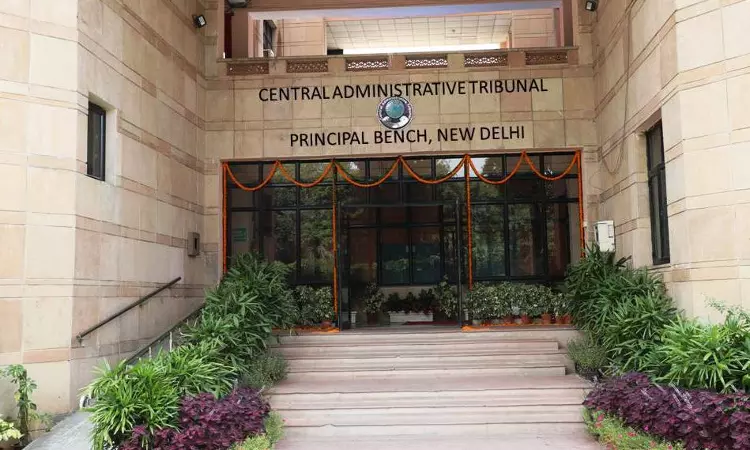
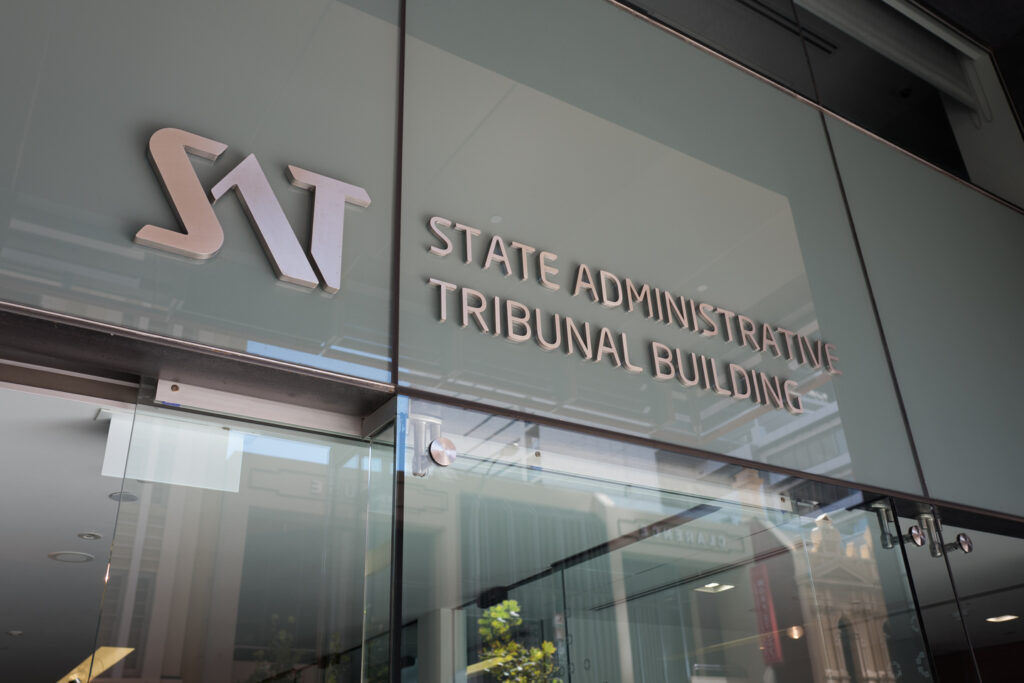
SERVICE MATTERS
Central Administration Tribunal and State Administrative Tribunals (SATs) are established to handle disputes and complaints related to the recruitment and service conditions of central and state government employees. These are quasi-judicial bodies created under the Administrative Tribunals Act of 1985. These tribunals expedite the resolution of service-related matters for central and state employees, offering a specialized forum outside the traditional court system. Here’s a more detailed explanation. CATs SATs are established by the Central Government, at the request of the respective state governments. They exercise original jurisdiction over recruitment and service matters of state government employees. The primary goal is to provide a faster and more efficient mechanism for resolving disputes related to state government employees’ service conditions. CATs and SATs primarily deal with issues such as recruitment, promotions, pay, and other service-related matters for state government employees.
Our law firm deals with the legal service of service laws and it includes appearances in authorities, filing petition, Replies, Mediation, Negotiation and Legal Notices.

NARCOTIC DRUGS AND PSYCHOTROPIC SUBSTANCES ACT (NDPS) AND EXCISE LAW
The Narcotic Drugs and Psychotropic Substances Act, 1985 (‘NDPS Act’) aims at restricting production, cultivation, sale, purchase, transport, storage, and/or consumption of any narcotic drug or psychotropic substance by individuals, and regulation of operations relating to the specified substances mentioned in the Act. Excise law cases generally involve disputes related to excise duties, which are taxes on the manufacture, sale, or production of specific goods, often including alcohol and other excisable items. These cases can range from challenges to the levy and collection of excise duties to alleged violations of excise laws, such as illegal manufacture or sale of excisable goods. Presumptions of bail provisions under the NDPS Act are different from the bail provisions under BNS. In NDPS, Accused firstly have to prove that there is no prima facie case against him, thereafter only bail may be granted.

MATRIMONIAL LAWS
Matrimonial litigation, a subset of family law, encompasses legal disputes arising from the breakdown of a marriage in the form of Dissolution of marriage, dissertation, Non-performance of conjugal rights, Non-Maintenance to spouse and children born out of the wedlock, Domestic Violence, Dowry Demands. This includes divorce, annulment, and legal separation, as well as related issues like child custody, support, and property division.
Our law firm deals with the legal service of Matrimonial laws and it includes –
- Divorce and Dissolution of Marriage.
- Compliance of Marital rights and duties i.e- Restitution of conjugal Rights and Dissertation
- Child Custody and Maintenance
- Property Division
- Alimony and Maintenance
- Domestic violence and Dowry Demand.
- Complaints to women cell.
- Marriage registration.
- Mutual consent divorce.
- Suits related to children, wards, guardianship, estate, property, custody, execution, claims, partitions and various petitions etc.
